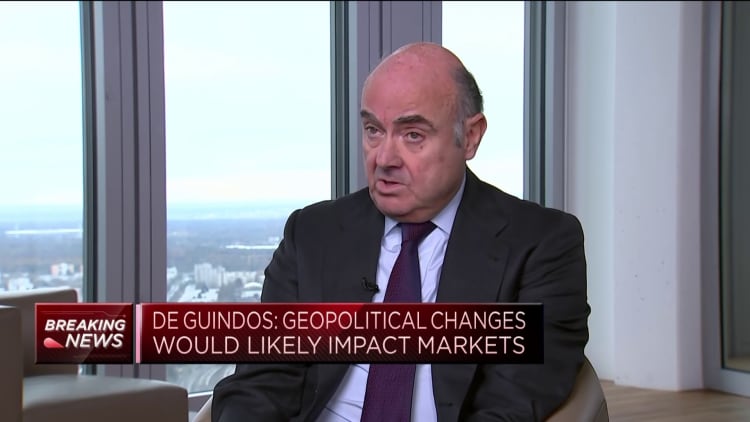
Markets may be failing to fully price in risks from geopolitics and the economic outlook — and the European Central Bank is monitoring this as a potential threat to financial stability, the group’s vice-president said Wednesday.
“Markets have a very good perception, or illusion, of the macro economy. They believe that we are going to have a soft landing, they believe that geopolitical risks will not escalate, and so the risk premia for both bonds and equities is very compressed,” Luis de Guindos told CNBC’s Annette Weisbach.
“So just in case we have a negative surprise in terms of the evolution of economy, in terms of the evolution of inflation, in terms of any escalation of geopolitical risks, I think this could give rise to an important correction in market prices.”
He added, “This is one of the main elements that we believe now could produce volatility in the financial landscape.”
He was discussing the release of the central bank’s Financial Stability Review for November, which tackles the challenges of a “soft landing” that brings down inflation without significant economic damage.
The report notes that concerns over banking sector volatility from the spring, when several banks collapsed, have faded. However, it says risks to financial stability remain “elevated,” as attention is now on the knock-on effects of tight financial and credit conditions on borrowers, and a correction in real estate markets.
The ECB is projecting a low euro zone growth of 1%, but no recession in 2024 — which de Guindos said he believed was the “baseline for everybody now.” The region’s economy contracted 0.1% in the third quarter.
“There are always negative surprises that happen… with respect to inflation the evolution has been very positive, from 10.6% to the current level that is below 3%, and we expect this disinflation process will continue over time. Nevertheless, because of base effects we will have some increase in inflation over the next months,” de Guindos said.
Further negative surprises could be generated from the delayed transmission of higher rates into the real economy, wage growth, productivity and the price of oil, he said.
Credit: Source link











